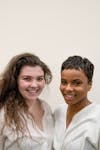Search Results
Use the field below to perform an advanced search of The Justice archives. This will return articles, images, and multimedia relevant to your query.
(04/16/19 10:00am)

Some of the works included in the display were art deco journals, the books of artists, illustrations cut into wood, incunabula, fore-edge paintings and medieval manuscripts.
(04/09/19 10:00am)
Culture X, the biggest cultural show of the semester, is entering its 20th anniversary! 16 artists and groups will be performing on Saturday night in Levin Ballroom. To preview this event, the Justice spoke to the CultureX chair team member, Gabi Rivero, about what clubs will be performing and what Culture X means to her. Other chairs include Maurice Windley '19, Brianna Brown '19, Connie Kai '22, Imani Islam '20 and Gabriela Macedo Telles '20.
(04/09/19 10:00am)
(04/09/19 10:00am)
The Japanese Student Association held their culture show in the Levin Ballroom for the first time last Friday. They called the show J-SAI, an amalgamation of “Japan” and the kanji, the logographic character in Japanese, for “festival,” which can be pronounced either as matsuri or sai. This title was all JSA needed for their beautiful stage backdrop: a stylized version of J-SAI surrounded with flowers and a grid pattern of green and blue squares.
(04/09/19 10:00am)
At first glance, Howardena Pindell’s “Autobiography: Scapegoat” appears to be a simple collage of magazine-like cutouts and words against a gray background. However, after viewing the work for a few seconds, you begin to notice the complicated texture. Though the work is not a sculpture by any means, the techniques Pindell use are reminiscent of 3D pieces. By overlapping many different mediums, ridges form across the entire background, drawing the viewer’s attention to the smoother areas. It is in these areas where her message lies. Phrases such as, “if you don’t do what we say we will,” “we will have our way” and “do not underestimate our power” quite literally hang over the heads of silhouettes and painted images of women, men and children of color.
(04/09/19 10:00am)
This week, justArts spoke with Robin Donohoe ’19 and Courtney Page ’19, who are members of the Campus Activity Board excutive board.
(04/09/19 10:00am)

Tré Warner performs the song which got him the Springfest gig, entitled Springfest Freestyle. Tré Warner, who goes by the rapper name Trizzy Tré, was selected as a student performer for this year’s Springfest concert.
(04/09/19 10:00am)

Howardena Pindell, "Autobiography: Scapegoat," 1990. 76 1/2 x 140 inches, Mixed media on canvas. The Studio Museum in Harlem; Museum Purchase. 1994.1
(04/09/19 10:00am)

Ari Lennox feels her song as she performs to a roaring crowd during Springfest. She gave a heartfelt performance and interacted with the crowd.
(04/09/19 10:00am)

Tré Warner performs the song which got him the Springfest gig, entitled Springfest Freestyle. Tré Warner, who goes by the rapper name Trizzy Tré, was selected as a student performer for this year’s Springfest concert.
(04/09/19 10:00am)

FRIENDS FROM BERKLEE: Katsuo, a guest band from Berklee College of Music, thrilled the audience with a series of love songs.
(04/09/19 10:00am)

TALENTED BOARD: The Japanese Student Association not only organized the event, but also put on an exciting dance sequence at the end of the show.
(04/09/19 10:00am)

COLOR AND SHADES: The set of the show was used as the background of the performance, changing color with different lighting.
(04/09/19 10:00am)

(04/09/19 10:00am)

Members of the crowd wave their hands up in hopes of receiving a free t-shirt from the Campus Activities Board. The front of the t-shirt states, “How you gonna be sad on Springfest?”
(04/09/19 10:00am)

Aminé sings to the crowd who had been waiting for him to perform all day. Throughout his riveting performance, Aminé sang his hit songs “Caroline” and “Spice Girl” and the crowd went wild.
(04/09/19 10:00am)

BEATS AND RHYTHM: Students provided a variety of performances, from a fashion show to taiko drumming.
(04/09/19 10:00am)

The DJ told the crowd to wave their hands in the air.
(04/02/19 10:00am)
JustArts: Tell me a bit about yourself and your experience with theater.
(04/02/19 10:00am)
Howardena Pindell’s “‘Till Brinam Wood Removes to Dunsinane’ (Macbeth, Act 5, Scene 3)” (1991) effectively draws the audience’s attention, first focusing their eyes on the yellow center where the large text “Have A Nice Day” starkly contrasts with the smaller words “propaganda,” “death” and “double standards” surrounding it. Throughout the work, Pindell uses the same technique of eye-catching contrasts. In the black background, bright, blood-red handprints break up the blackness and draw the public’s eye to certain words neighboring them. Phrases like “Full Air Explosives,” painted in red, appear next to words like “Silence,” written completely in white. Here, a word with loud and destructive connotations appears next to “Silence,” the result of destruction, implying a lack of life.













